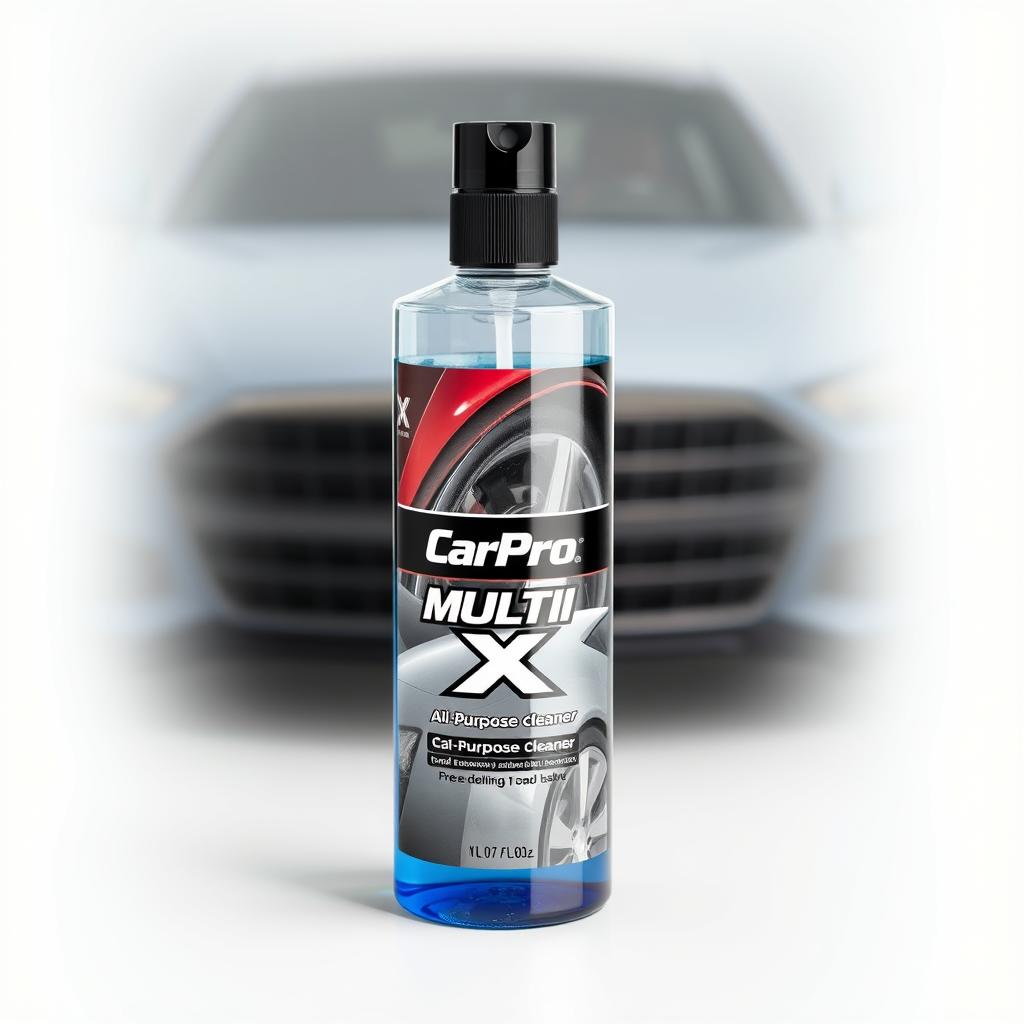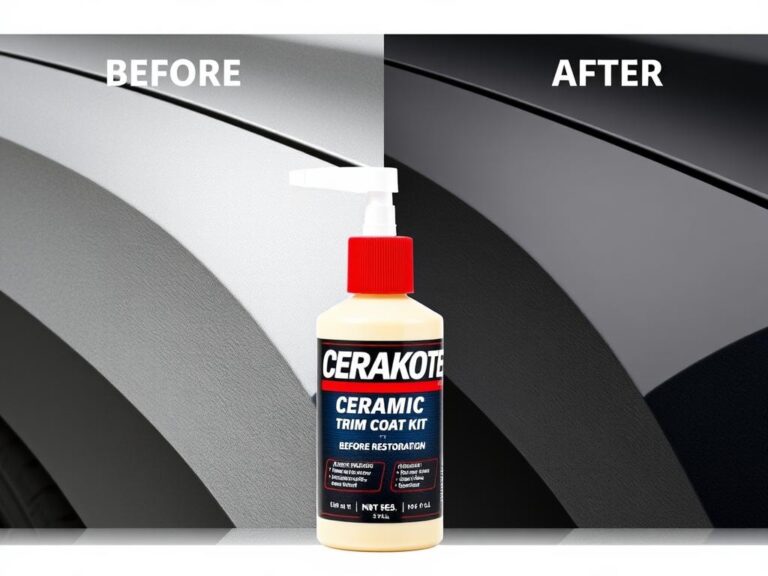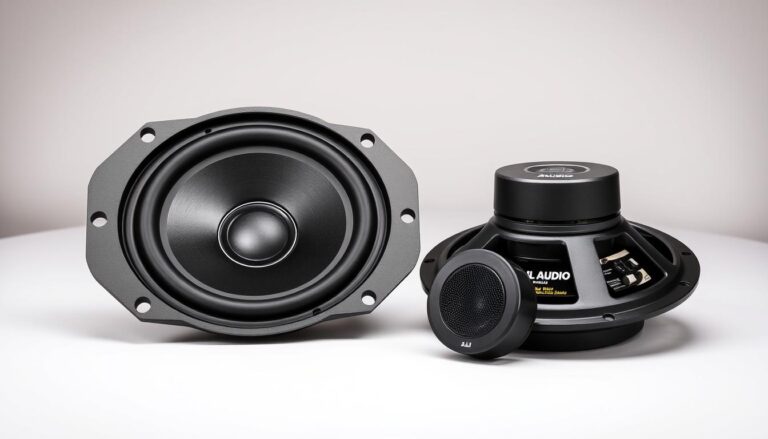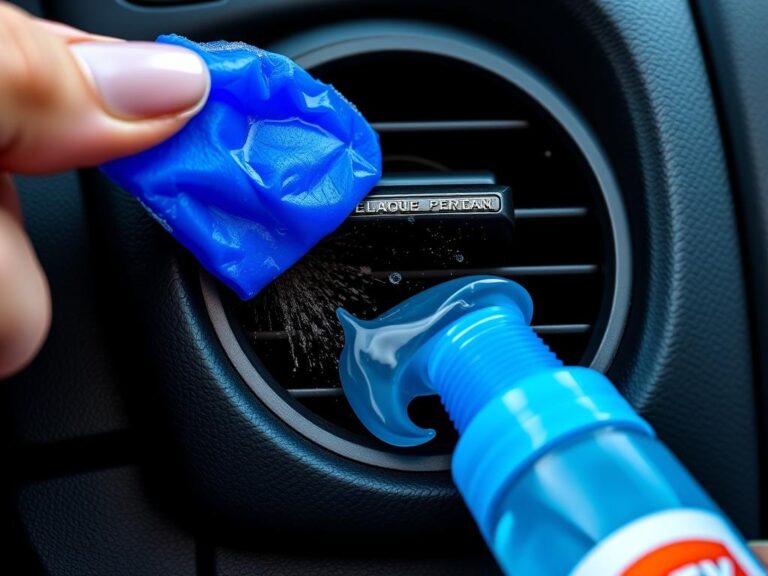Best APC for Car Detailing in 2025 – pH-Neutral Formulas, Multi-Surface Safety
Finding the right all-purpose cleaner (APC) for your car detailing needs can be overwhelming. With countless options promising to clean everything from leather seats to engine bays, how do you choose one that’s effective without damaging delicate surfaces? After consulting professional detailers and analyzing real-world performance, we’ve identified the top APC products that deliver exceptional results while protecting your vehicle’s surfaces.
As an Amazon Associate, we earn from qualifying purchases.
Top APC Products for Car Detailing: Quick Comparison
| Product Image | Model / Product | Best For | Formula Type | Surface Compatibility | pH Level | Price Range | Check Price |
| CarPro Multi X Editor’s Choice | Ceramic-coated vehicles | Concentrated | All surfaces including coatings | 7.0 (Neutral) | $25-30 | Check Price on Amazon | |
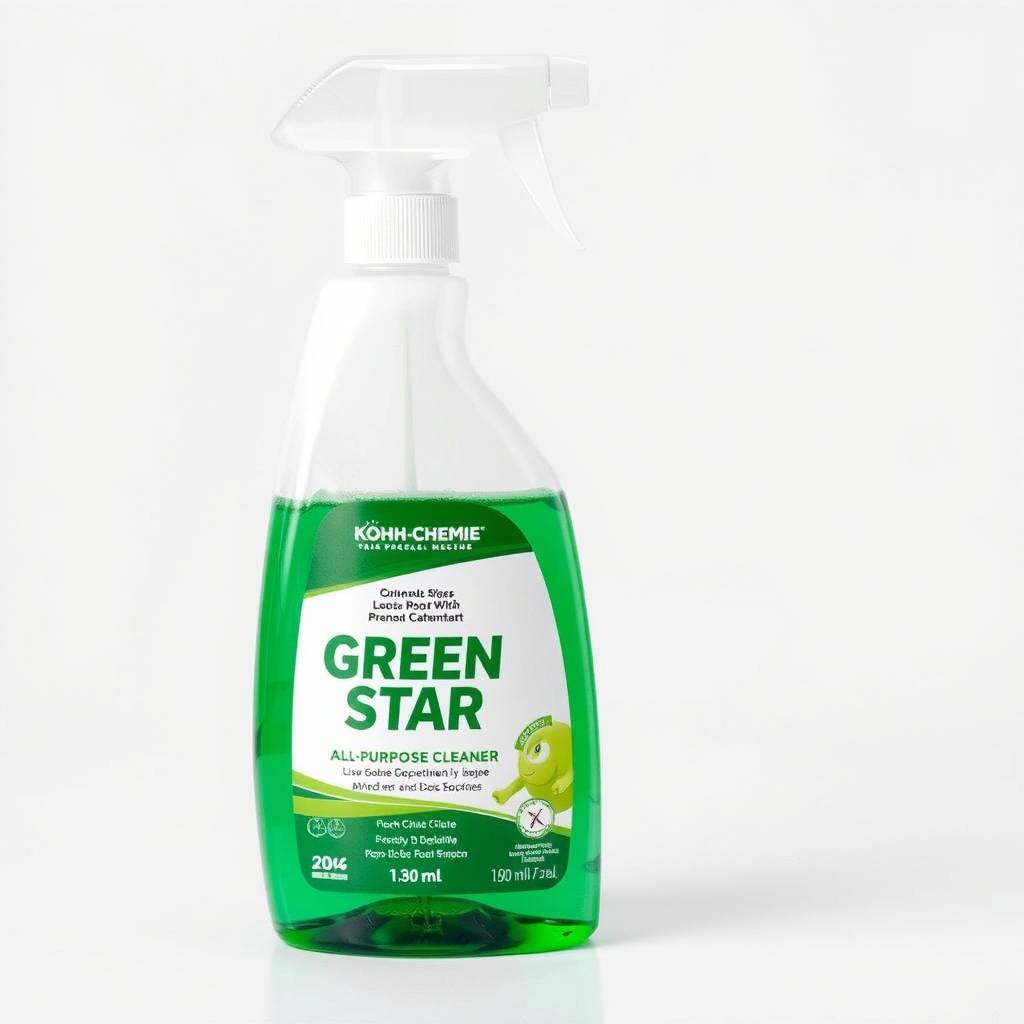 |
Koch Chemie Green Star | Professional detailers | Highly concentrated | Exterior & engine bay | 12.5 (Alkaline) | $35-45 | Check Price on Amazon |
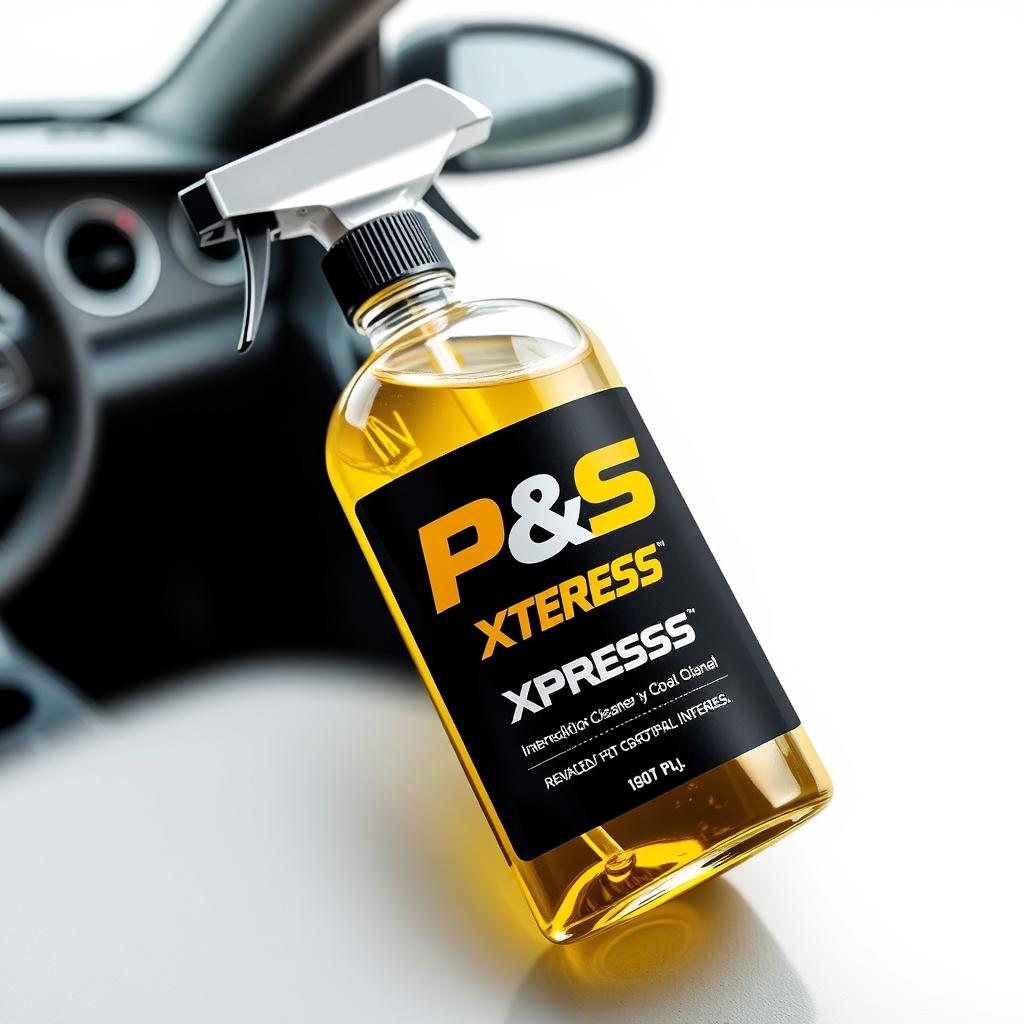 |
P&S Xpress Interior Cleaner | Interior quick cleaning | Ready-to-use | All interior surfaces | 7.0 (Neutral) | $12-18 | Check Price on Amazon |
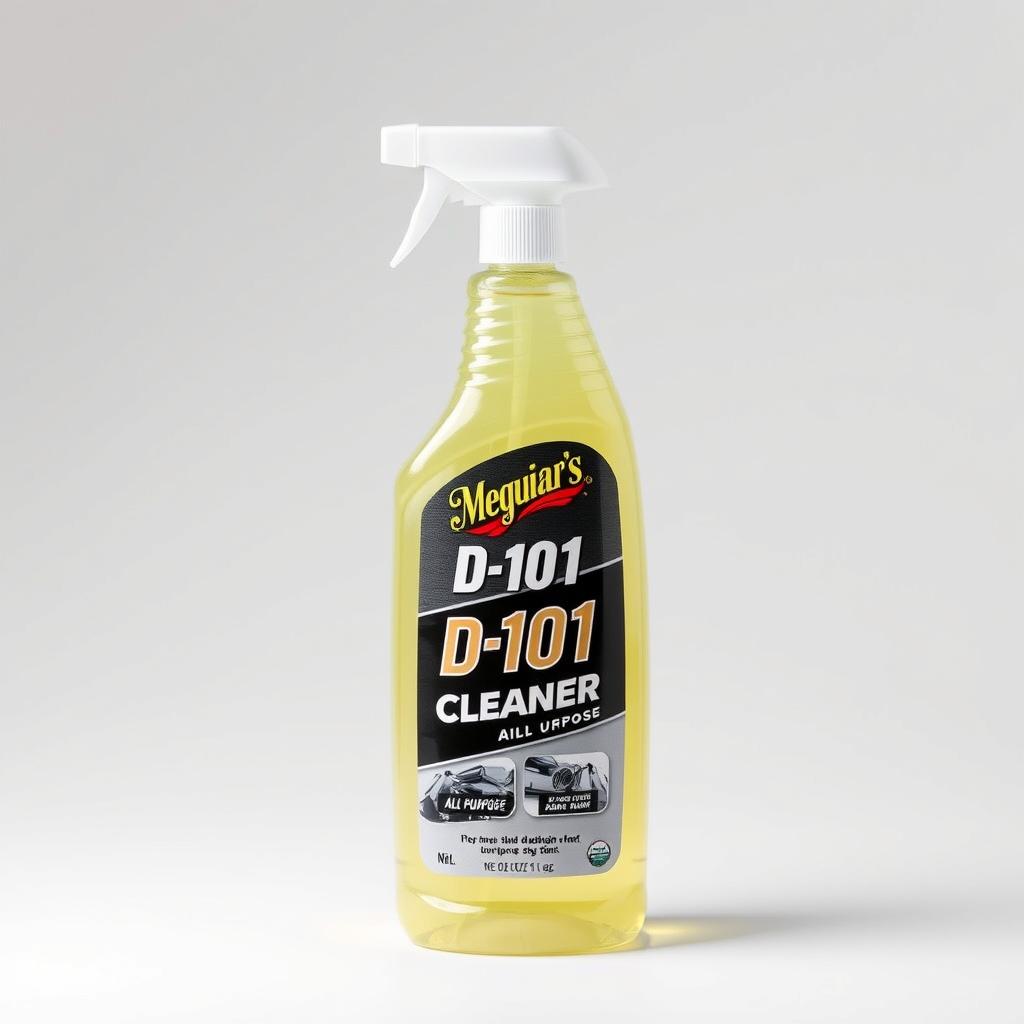 |
Meguiar’s D101 | Value & versatility | Concentrated | Interior & exterior | 10.5 (Alkaline) | $15-25 | Check Price on Amazon |
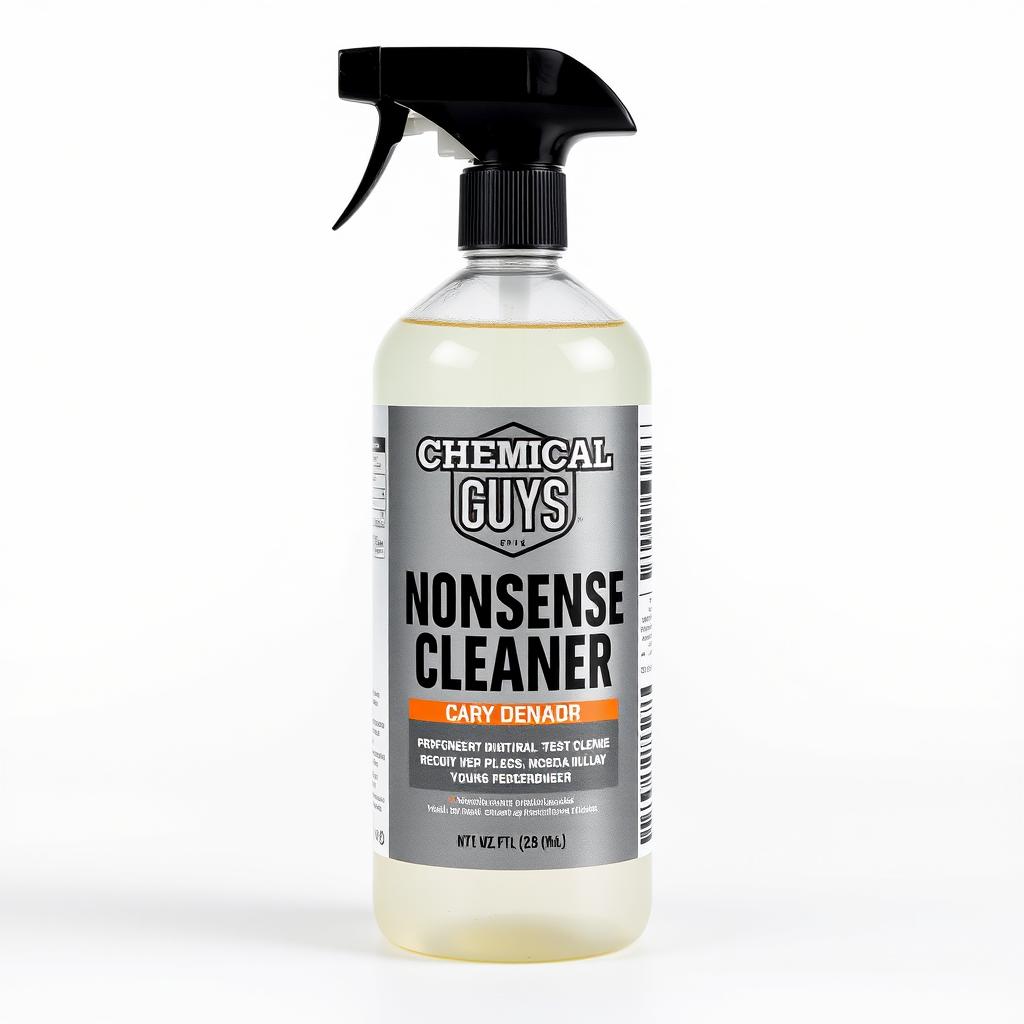 |
Chemical Guys Nonsense | Sensitive interiors | Concentrated | All interior surfaces | 7.0 (Neutral) | $18-22 | Check Price on Amazon |
What Is an All-Purpose Cleaner for Car Detailing?
An all-purpose cleaner (APC) is a versatile cleaning solution designed to tackle multiple surfaces in your vehicle. Unlike specialized cleaners, a quality APC can handle everything from interior plastics and leather to exterior trim and wheel wells. The best car detailing APCs strike a balance between cleaning power and surface safety.
Why Use an APC for Car Detailing?
- Versatility: Clean multiple surfaces with a single product
- Cost-effectiveness: Reduce the need for numerous specialized cleaners
- Convenience: Simplify your detailing process and save time
- Adjustable strength: Many APCs can be diluted for different cleaning tasks
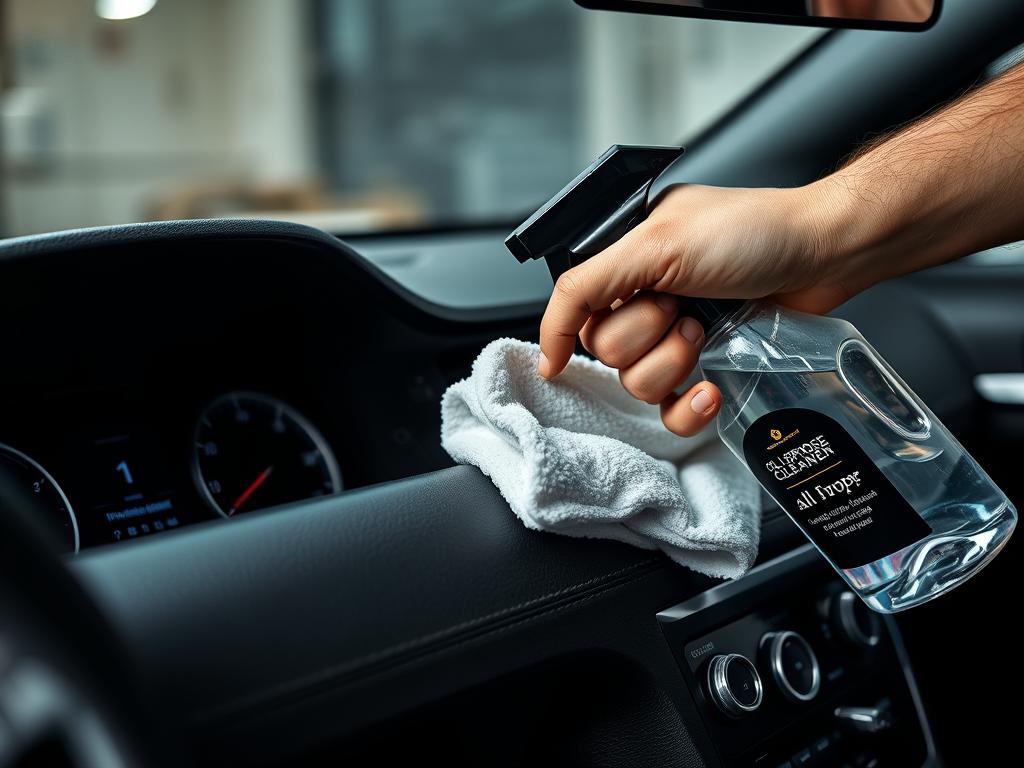
The key to successful APC use is understanding which products are safe for specific surfaces and how to properly dilute concentrated formulas. Let’s examine the top products that deliver exceptional results while protecting your vehicle’s surfaces.
Editor’s Choice: CarPro Multi X
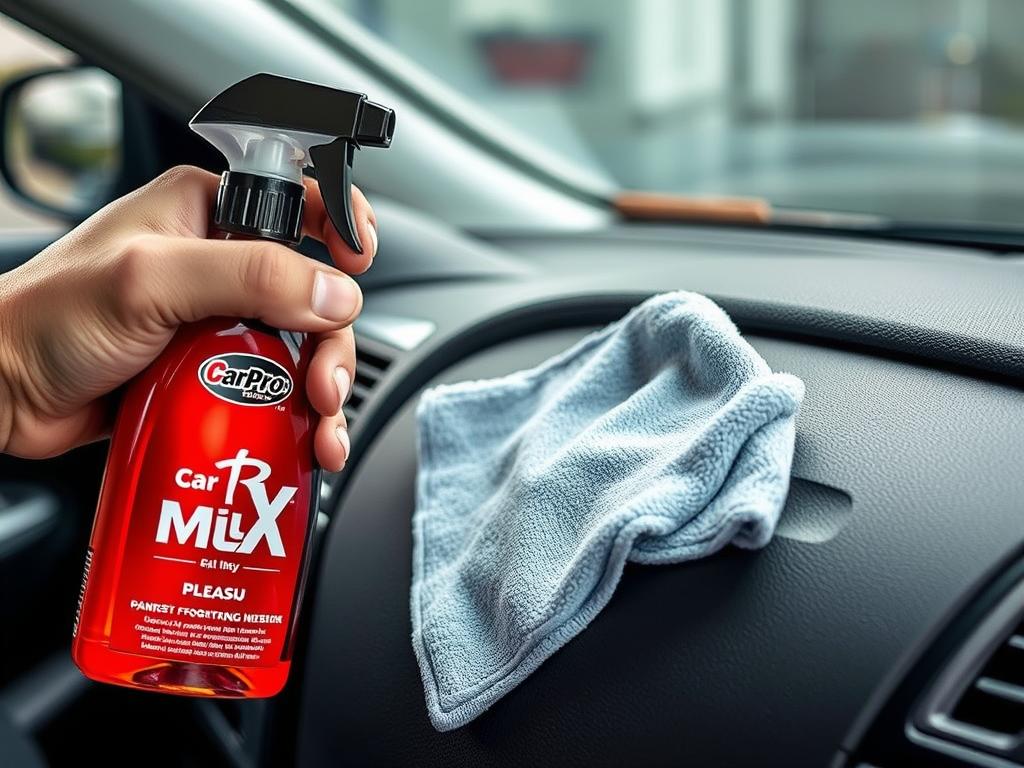
CarPro Multi X stands out as our Editor’s Choice due to its exceptional versatility and pH-neutral formula that’s safe for all surfaces, including ceramic coatings. This professional-grade cleaner effectively removes oils, dirt, and grime without compromising your vehicle’s protective layers.
| Concentrated (1:3 to 1:15 dilution) | 7.0 (Neutral) |
| All surfaces including coatings | 500ml concentrate |
| Mild chemical | Non-toxic, coating-safe |
Pros
- Safe for ceramic coatings and all surfaces
- Excellent degreasing capabilities
- No residue when properly rinsed
- Highly concentrated for value
Cons
- Higher upfront cost than alternatives
- Requires proper dilution knowledge
- Mild chemical scent
Users consistently praise Multi X for its ability to clean thoroughly without leaving residue or damaging sensitive surfaces. Professional detailers particularly value its compatibility with ceramic coatings and paint correction work.
Best for Professional Detailers: Koch Chemie Green Star
Koch Chemie Green Star has earned a devoted following among professional detailers for its exceptional cleaning power and extreme concentration capabilities. This German-engineered formula can tackle the toughest grime while offering excellent value through its high dilution ratios.
| Highly concentrated (up to 1:100) | 12.5 (Alkaline) |
| Exterior & engine bay (caution on interiors) | 1L or 5L concentrate |
| Chemical | Biodegradable, wear gloves |
Pros
- Exceptional cleaning power
- Extreme concentration (up to 1:100 dilution)
- Biodegradable formula
- Professional-grade performance
Cons
- High alkalinity (pH 12.5) requires caution on interiors
- Requires dilution equipment
- Strong chemical scent
Users report that Green Star excels at exterior cleaning and engine bay degreasing. For interior use, most professionals recommend high dilution ratios (1:20 or higher) and thorough rinsing to prevent residue.
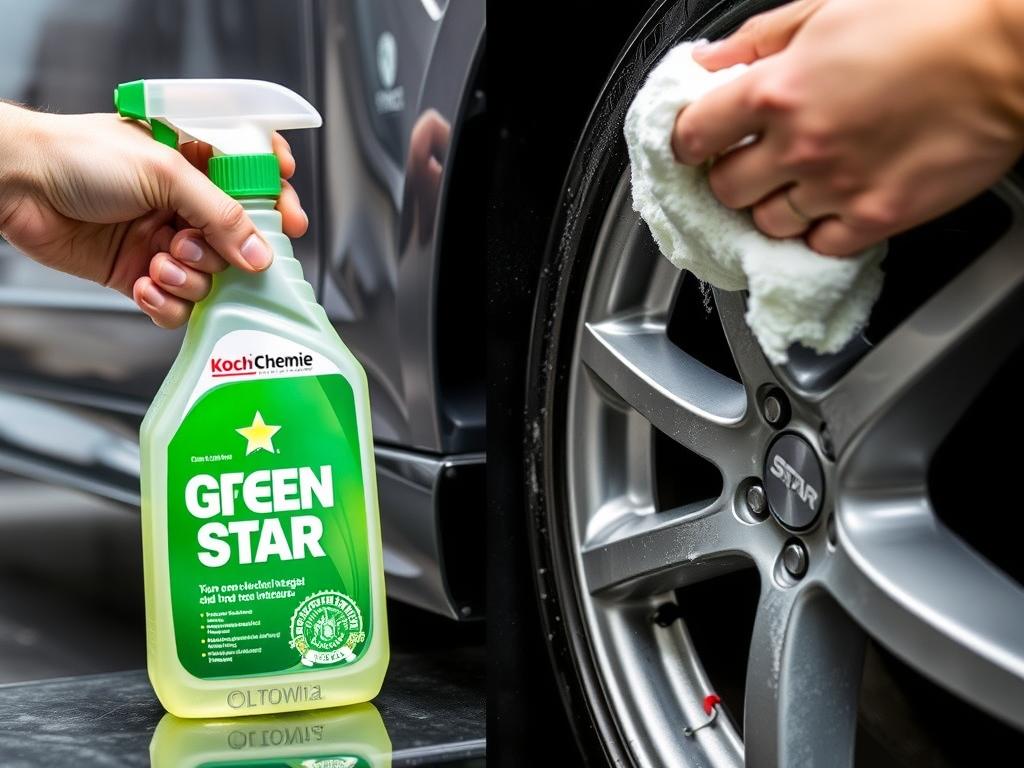
Best Interior-Specific APC: P&S Xpress Interior Cleaner
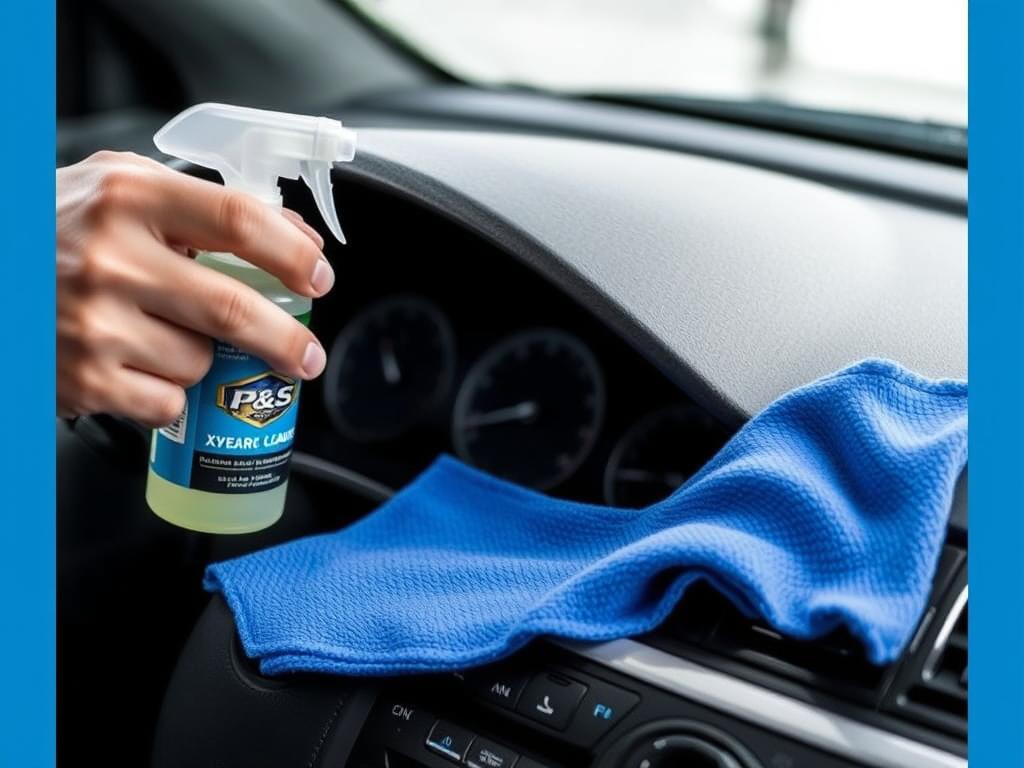
P&S Xpress Interior Cleaner stands out as a purpose-built solution for quick and effective interior cleaning. This ready-to-use formula eliminates the guesswork of dilution while delivering consistent results across all interior surfaces.
| Ready-to-use | 7.0 (Neutral) |
| All interior surfaces | 16oz or 1 gallon |
| Mild, pleasant | pH-neutral, interior-safe |
Pros
- No dilution required
- Safe for all interior surfaces
- No residue or greasy finish
- Pleasant scent
Cons
- Higher cost per use than concentrates
- Not ideal for heavy-duty cleaning
- Limited to interior applications
Users consistently praise Xpress Interior Cleaner for its ease of use and safety on delicate surfaces. Many professional detailers keep it on hand for quick interior refreshes and client vehicles with premium materials.
Best Value: Meguiar’s D101 All-Purpose Cleaner
Meguiar’s D101 has earned its reputation as the industry workhorse, delivering consistent performance across a wide range of cleaning tasks at an accessible price point. This concentrated formula offers excellent versatility for both interior and exterior applications.
| Concentrated (4:1 to 20:1) | 10.5 (Alkaline) |
| Interior & exterior (caution on delicate surfaces) | 1 gallon concentrate |
| Chemical | Wear gloves for concentrated use |
Pros
- Excellent value per cleaning
- Versatile across multiple surfaces
- Widely available
- Proven track record
Cons
- Alkaline formula requires proper dilution
- Can leave residue if not rinsed properly
- Not ideal for sensitive materials
Users consistently report that D101 delivers professional results when properly diluted. Many detailers rely on it as their primary APC, adjusting dilution ratios based on the specific cleaning task.
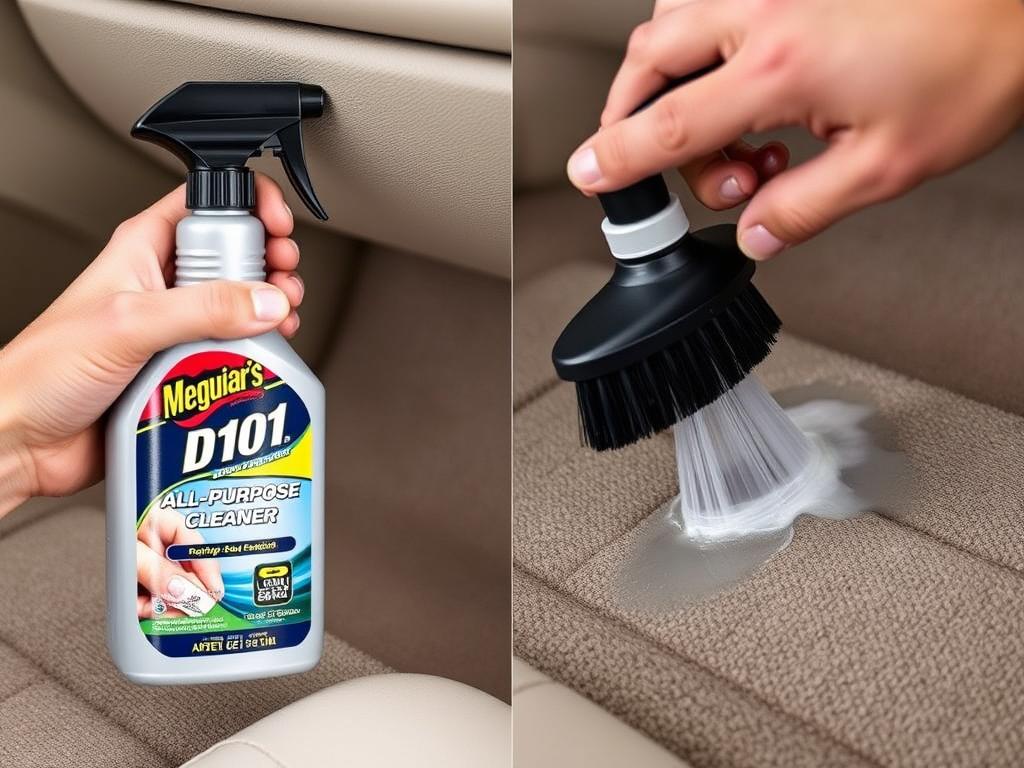
Best for Sensitive Surfaces: Chemical Guys Nonsense
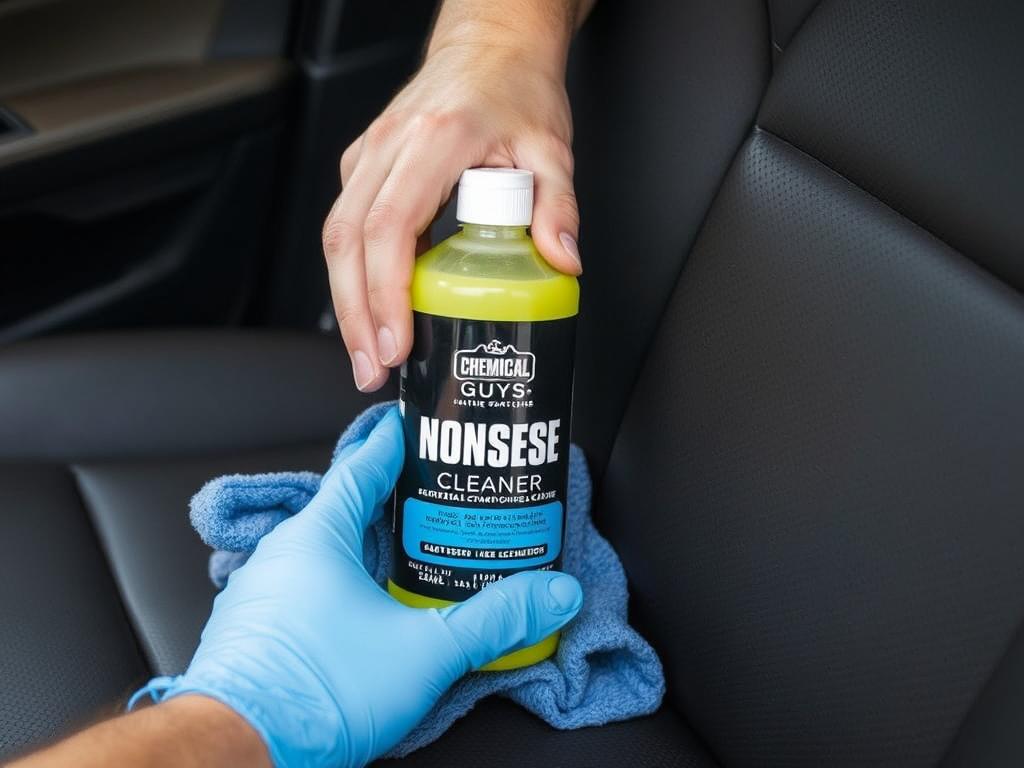
Chemical Guys Nonsense lives up to its name by eliminating the nonsense of harsh chemicals and strong fragrances. This pH-neutral, fragrance-free formula is specifically designed for safe use on premium interior materials including leather, alcantara, and delicate plastics.
| Concentrated (1:1 to 20:1) | 7.0 (Neutral) |
| All interior surfaces including premium materials | 16oz concentrate |
| None (fragrance-free) | pH-neutral, interior-safe |
Pros
- Safe for all interior surfaces
- No fragrance (ideal for sensitive users)
- Never causes discoloration
- Multiple dilution options
Cons
- Not strong enough for heavy exterior grime
- Higher per-ounce cost than alternatives
- Limited to interior applications
Users with premium vehicles particularly appreciate Nonsense for its gentle yet effective cleaning power. The fragrance-free formula is also popular among detailers with clients sensitive to strong scents.
Best Eco-Friendly Option: Bilt Hamber Surfex HD
Bilt Hamber Surfex HD has gained a loyal following for its powerful cleaning capabilities combined with environmentally friendly formulation. This water-based degreaser is biodegradable while still tackling tough cleaning tasks across interior and exterior surfaces.
| Highly concentrated (up to 1:100) | 13.25 (Highly alkaline) |
| Exterior & engine bay (high dilution for interiors) | 1L or 5L concentrate |
| Mild chemical | Biodegradable, wear gloves |
Pros
- Environmentally friendly formula
- Exceptional degreasing power
- Highly concentrated for value
- Water-based formula
Cons
- High alkalinity requires caution on interiors
- Requires thorough rinsing
- Limited availability in some regions
Users report that Surfex HD excels at engine bay cleaning and exterior degreasing. For interior use, most recommend high dilution ratios (1:20 or higher) and thorough rinsing to prevent residue.
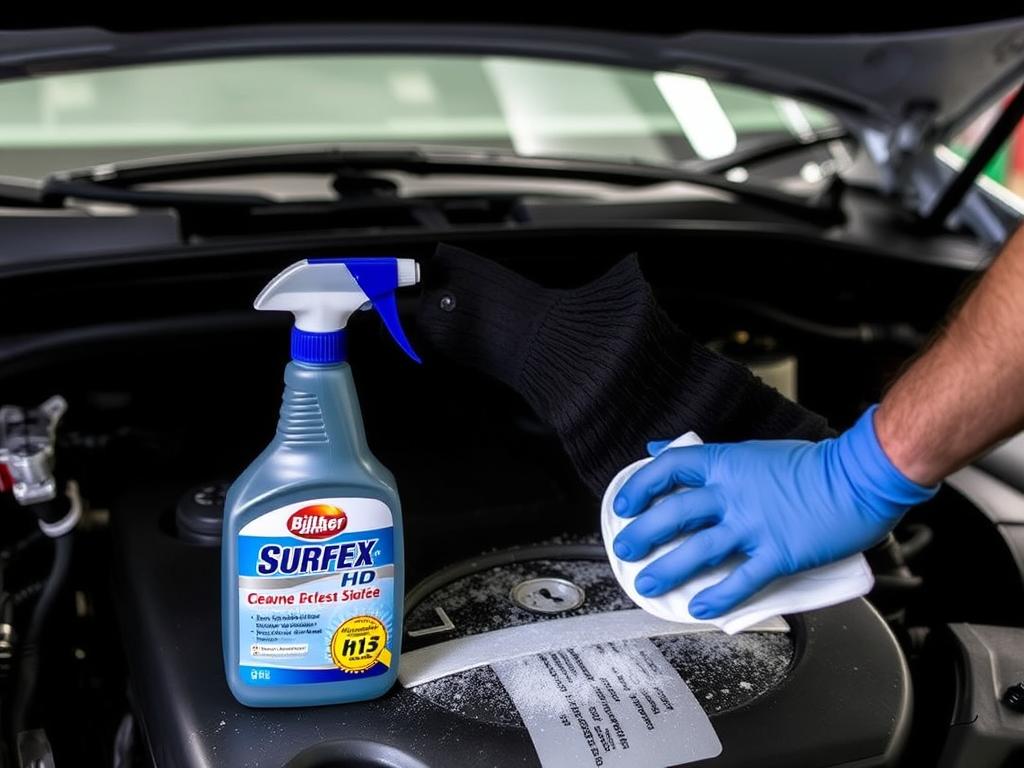
Best for Heavy-Duty Cleaning: 303 Multi-Surface Cleaner
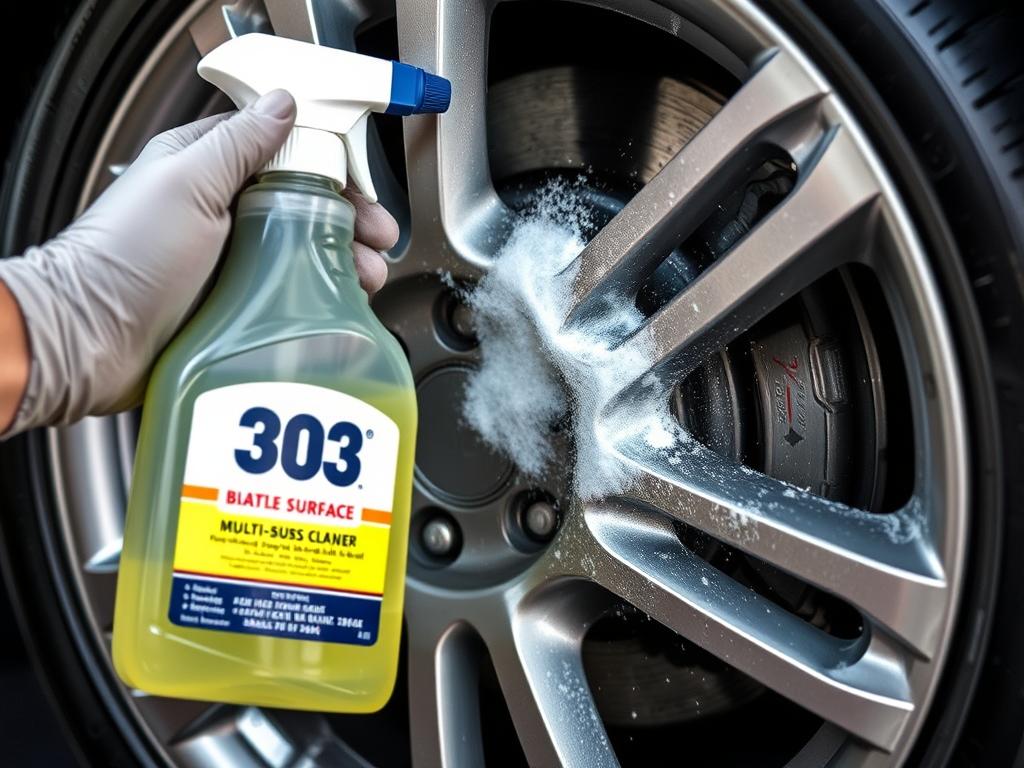
303 Multi-Surface Cleaner delivers exceptional performance on tough cleaning tasks while maintaining a safer pH balance than many heavy-duty alternatives. This versatile formula effectively tackles stubborn grime on wheels, tires, and engine bays without the extreme alkalinity of some competitors.
| Ready-to-use (concentrate available) | 9.5 (Mildly alkaline) |
| Exterior & interior (caution on delicate surfaces) | 32oz spray bottle |
| Mild chemical | Safer than many heavy-duty cleaners |
Pros
- Effective on tough grime
- Moderate pH compared to competitors
- Available in ready-to-use formula
- Multi-surface capability
Cons
- Not as powerful as extreme alkaline cleaners
- Higher cost per use than concentrates
- Still requires caution on sensitive surfaces
Users appreciate 303 Multi-Surface Cleaner for its balance of cleaning power and relative safety. Many find it ideal for wheel cleaning and moderate engine bay degreasing without the harsh chemicals of industrial degreasers.
Best Budget Option: Simple Green All-Purpose Cleaner
Simple Green has been a household name for decades, and its all-purpose cleaner continues to deliver reliable performance at an unbeatable price point. This biodegradable formula offers versatile cleaning capabilities for both automotive and household applications.
| Concentrated (up to 1:30) | 9.3 (Mildly alkaline) |
| Most surfaces (test on delicate materials) | 1 gallon concentrate |
| Characteristic Simple Green | Biodegradable, non-toxic |
Pros
- Exceptional value
- Widely available
- Biodegradable formula
- Multi-purpose for home and auto
Cons
- Distinctive scent not preferred by all
- Not as specialized as automotive-specific products
- Can leave residue if not properly rinsed
Users on a budget appreciate Simple Green for its accessibility and versatility. While not as specialized as automotive-specific products, it performs admirably for general cleaning tasks when properly diluted.
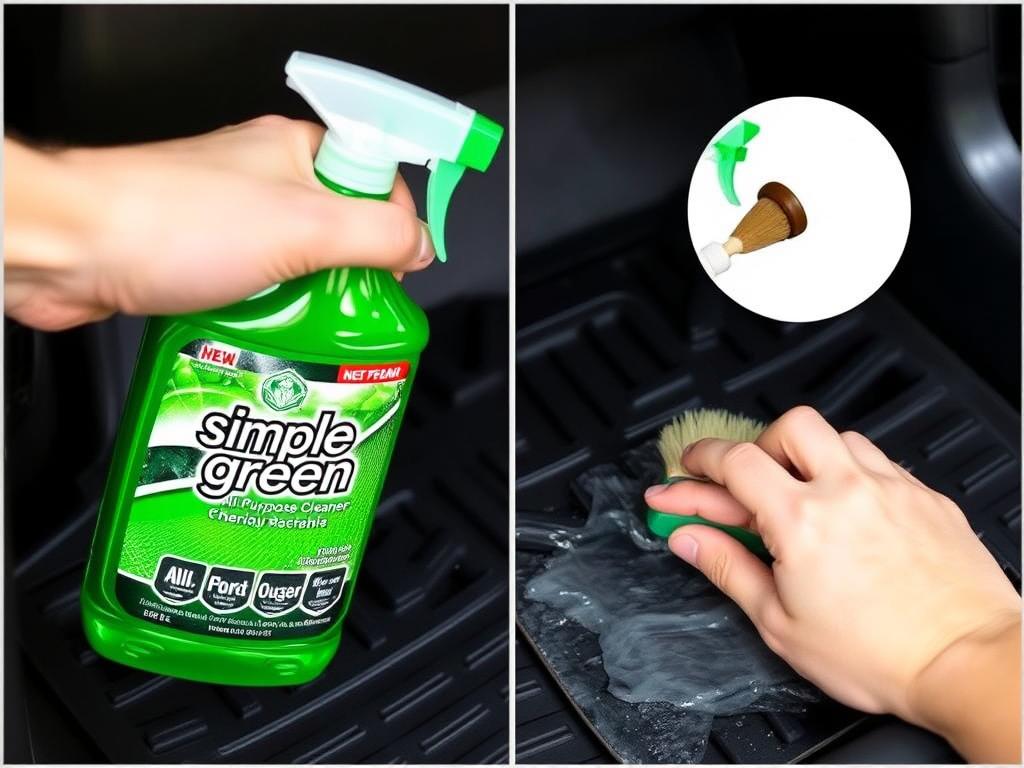
Best Ready-to-Use Formula: Griot’s Garage Interior Cleaner
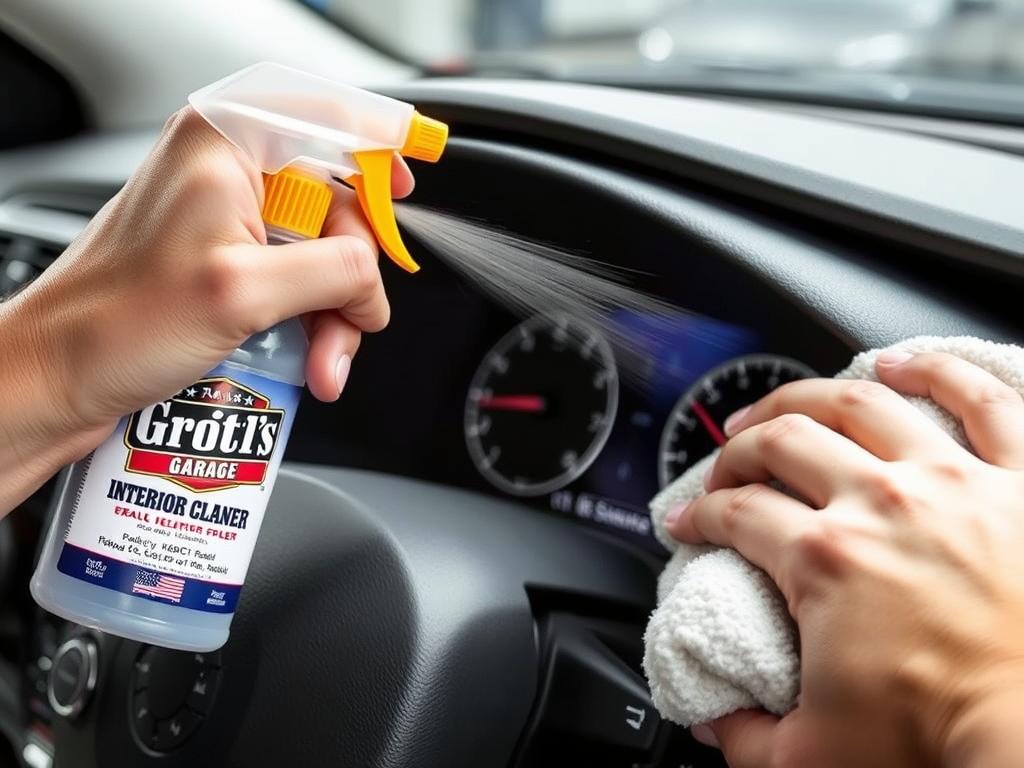
Griot’s Garage Interior Cleaner offers premium performance in a convenient ready-to-use formula. This pH-balanced cleaner is specifically formulated for automotive interiors, delivering effective cleaning without the guesswork of dilution ratios.
| Ready-to-use | 7.5 (Near neutral) |
| All interior surfaces | 22oz spray bottle |
| Light, pleasant | Interior-safe, no harsh chemicals |
Pros
- No dilution required
- Safe for all interior surfaces
- Pleasant scent
- Premium formulation
Cons
- Higher cost per use than concentrates
- Limited to interior applications
- Premium price point
Users who prioritize convenience appreciate Griot’s ready-to-use formula. Many report excellent results on dashboard surfaces, door panels, and center consoles without residue or unwanted shine.
Best for Leather Surfaces: Lexol pH-Balanced Leather Cleaner
While not a traditional APC, Lexol’s pH-balanced Leather Cleaner deserves mention for its exceptional performance on leather surfaces. This specialized formula safely cleans leather without stripping natural oils or causing damage to this delicate material.
| Ready-to-use | 5.5 (Slightly acidic) |
| Leather only | 16.9oz spray bottle |
| Mild leather | Leather-safe, pH-balanced |
Pros
- Specifically formulated for leather
- pH-balanced for leather safety
- Doesn’t strip natural oils
- Trusted brand for leather care
Cons
- Limited to leather surfaces
- Not a true multi-purpose cleaner
- Requires follow-up conditioner
Users with leather interiors often keep Lexol on hand alongside a general APC. Many professionals recommend it for regular leather maintenance between deeper cleanings with general APCs.
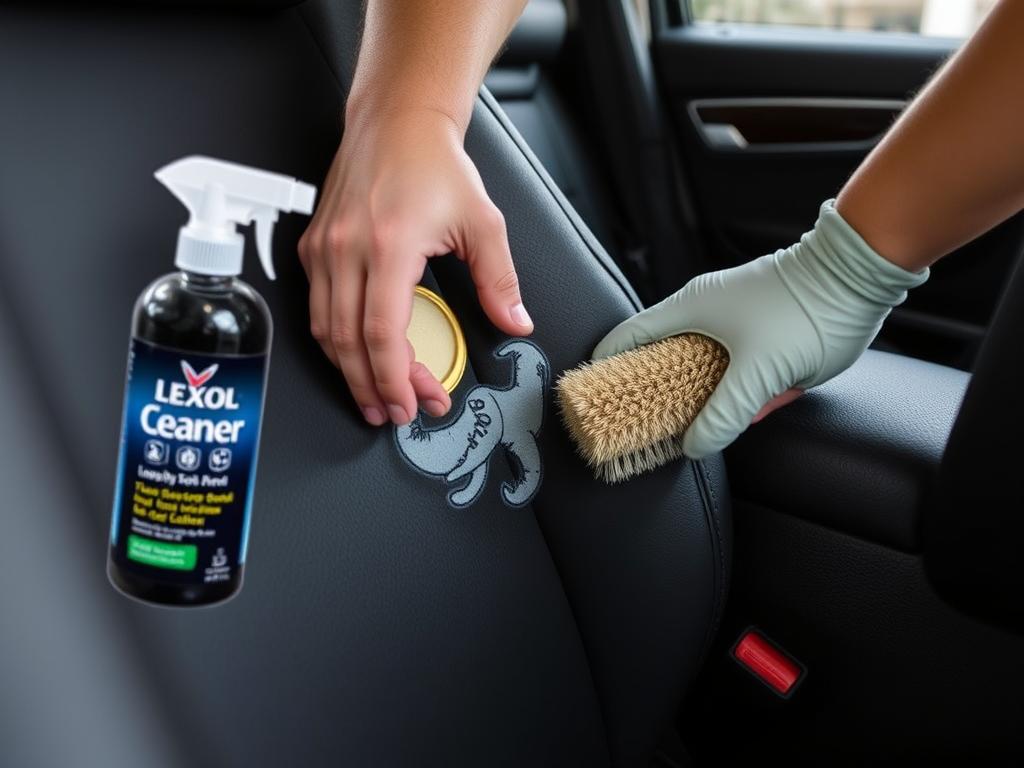
How to Choose the Best APC for Car Detailing
Selecting the right all-purpose cleaner for your car detailing needs requires considering several key factors. This guide will help you navigate the options based on your specific requirements.
Understanding pH Levels and Surface Safety
The pH level of an APC is perhaps the most critical factor in determining its safety for various surfaces:
- pH 0-6 (Acidic): Rarely used in APCs; found in specialized wheel cleaners
- pH 7 (Neutral): Safest for all surfaces including leather, alcantara, and coatings
- pH 8-10 (Mildly Alkaline): Good for general cleaning; use caution on sensitive surfaces
- pH 11-14 (Highly Alkaline): Powerful cleaning but can damage delicate surfaces; best for exteriors and engine bays
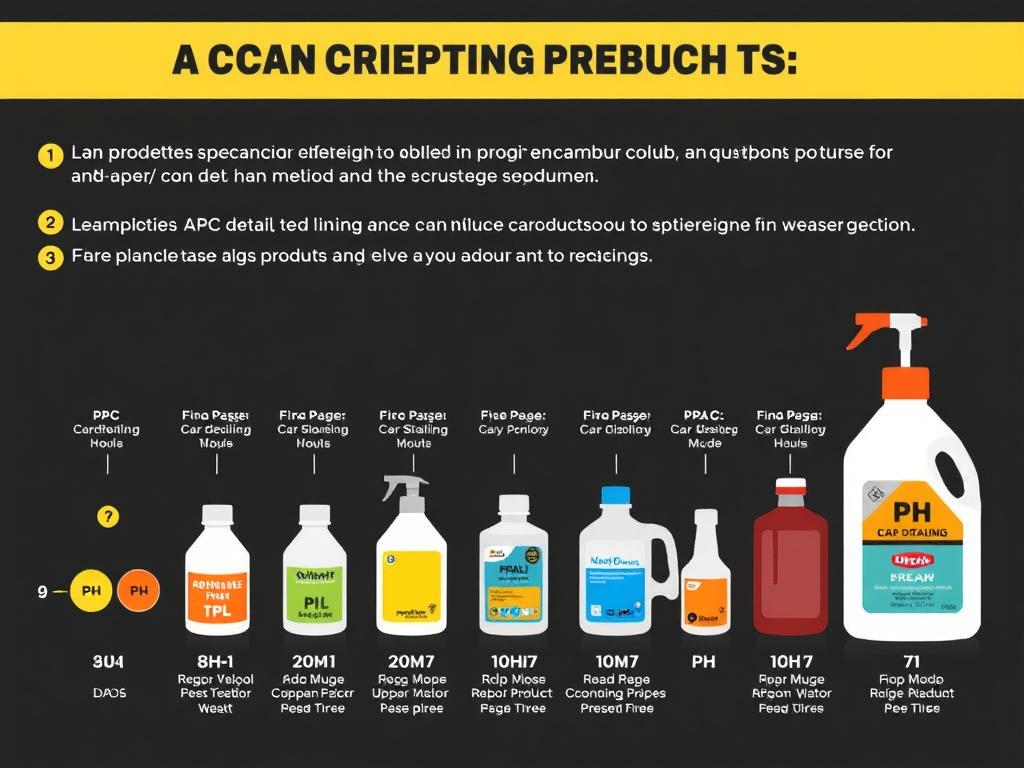
Concentrated vs. Ready-to-Use Formulas
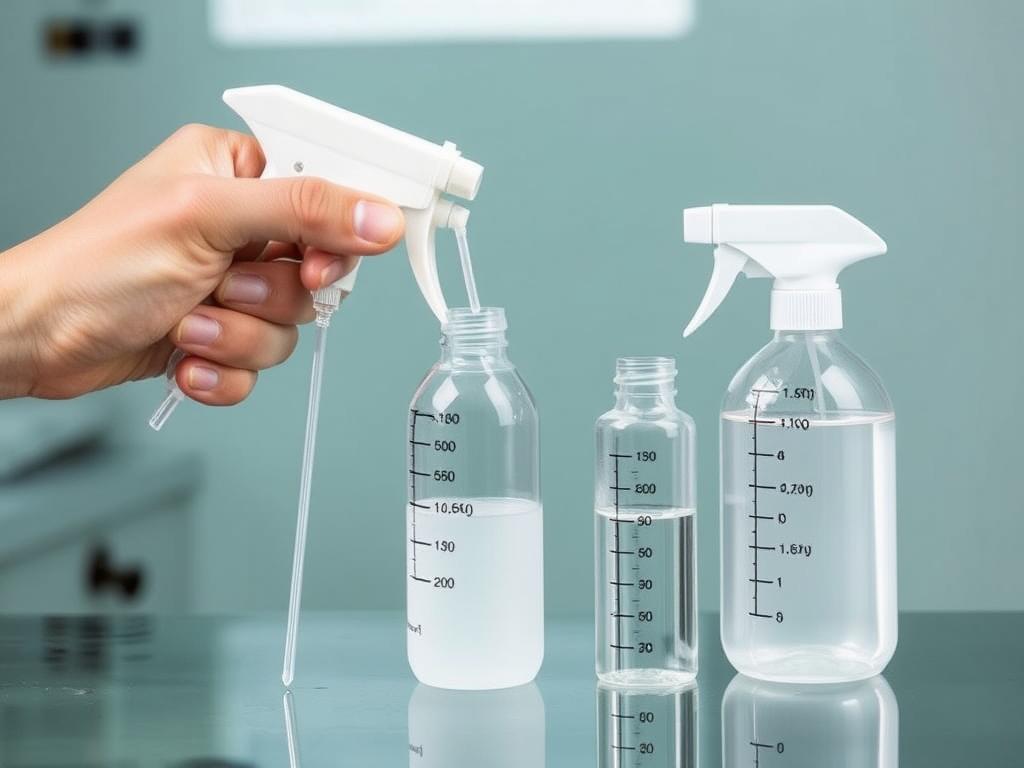
APCs come in two primary formats, each with distinct advantages:
Concentrated Formulas
- Pros: Cost-effective, customizable strength, less packaging waste
- Cons: Requires dilution knowledge, additional spray bottles, measuring tools
- Best for: Regular detailers, professionals, those seeking value
Ready-to-Use Formulas
- Pros: Convenient, consistent results, no mixing required
- Cons: Higher cost per use, less versatile, more packaging
- Best for: Occasional detailers, beginners, those prioritizing convenience
Common Dilution Ratios for Concentrated APCs
| Application | Typical Dilution | Example (32oz Bottle) | Suitable Products |
| Heavy-Duty (Engine Bay, Wheels) | 4:1 (4 parts water : 1 part APC) | 25.6oz water + 6.4oz APC | Koch Chemie Green Star, Surfex HD |
| Medium-Duty (Carpets, Fabric Seats) | 10:1 | 29oz water + 3oz APC | Meguiar’s D101, Chemical Guys Nonsense |
| Light-Duty (Dashboards, Door Panels) | 20:1 | 30.5oz water + 1.5oz APC | CarPro Multi X, Chemical Guys Nonsense |
| Delicate Surfaces (Leather, Alcantara) | 30:1 or higher | 31oz water + 1oz APC | CarPro Multi X, P&S Xpress (undiluted) |
Surface Compatibility Considerations
Different vehicle surfaces require different approaches to cleaning:
Interior Plastics & Vinyl
- Moderate pH tolerance (7-9)
- Can handle most APCs when properly diluted
- Avoid excessive heat exposure after cleaning
- Consider UV protection after cleaning
Leather & Delicate Materials
- Requires pH-neutral cleaners (6.5-7.5)
- Use dedicated leather cleaners when possible
- Always test in inconspicuous area first
- Follow with appropriate conditioner
Exterior & Engine Bay
- Can tolerate higher alkalinity (pH 9-12)
- Requires thorough rinsing
- Consider environmental impact of runoff
- Protect sensitive components during cleaning
Budget Considerations
APCs are available at various price points, with cost often reflecting concentration and specialization:
Budget ($10-20)
- Simple Green
- Superclean
- Generic brands
- Good for occasional use
Mid-Range ($20-35)
- Meguiar’s D101
- P&S Xpress
- 303 Multi-Surface
- Best value for regular detailers
Premium ($35+)
- CarPro Multi X
- Koch Chemie Green Star
- Griot’s Garage products
- Ideal for professionals and enthusiasts
Professional Application Tips for APCs
Interior Cleaning Best Practices
- Always test in an inconspicuous area first
- Apply product to microfiber cloth, not directly on surface (for most applications)
- Work in small sections to prevent drying
- Use soft brushes for textured surfaces and vents
- Follow with a clean, damp microfiber to remove residue
- Allow surfaces to dry completely before applying protectants
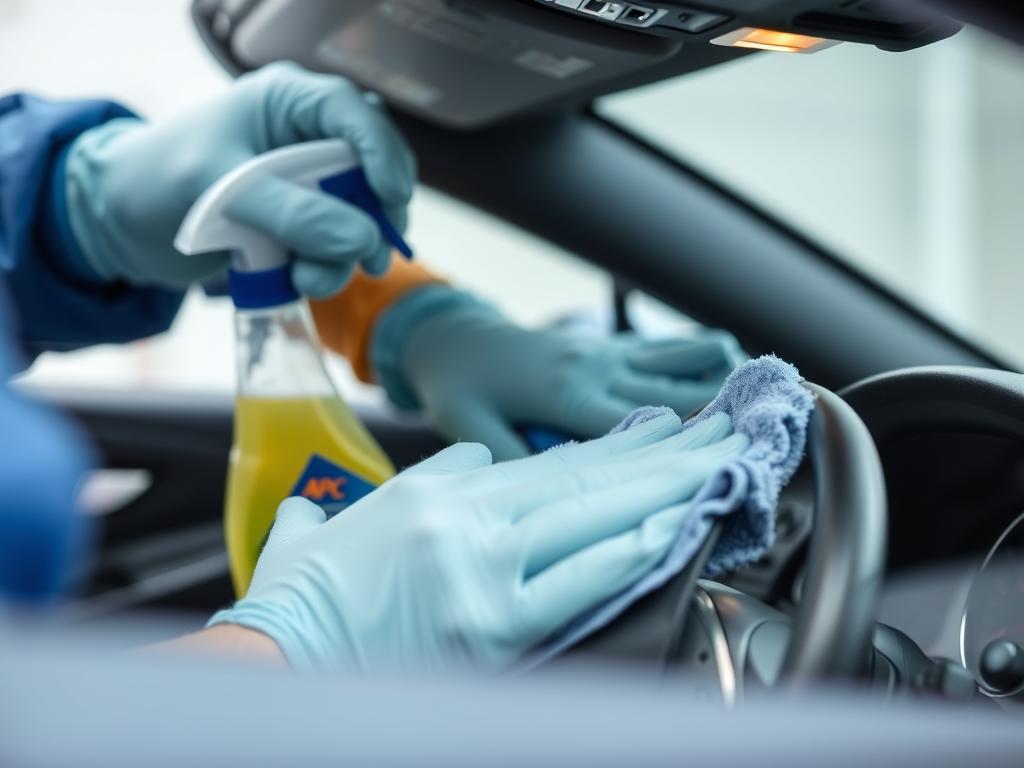
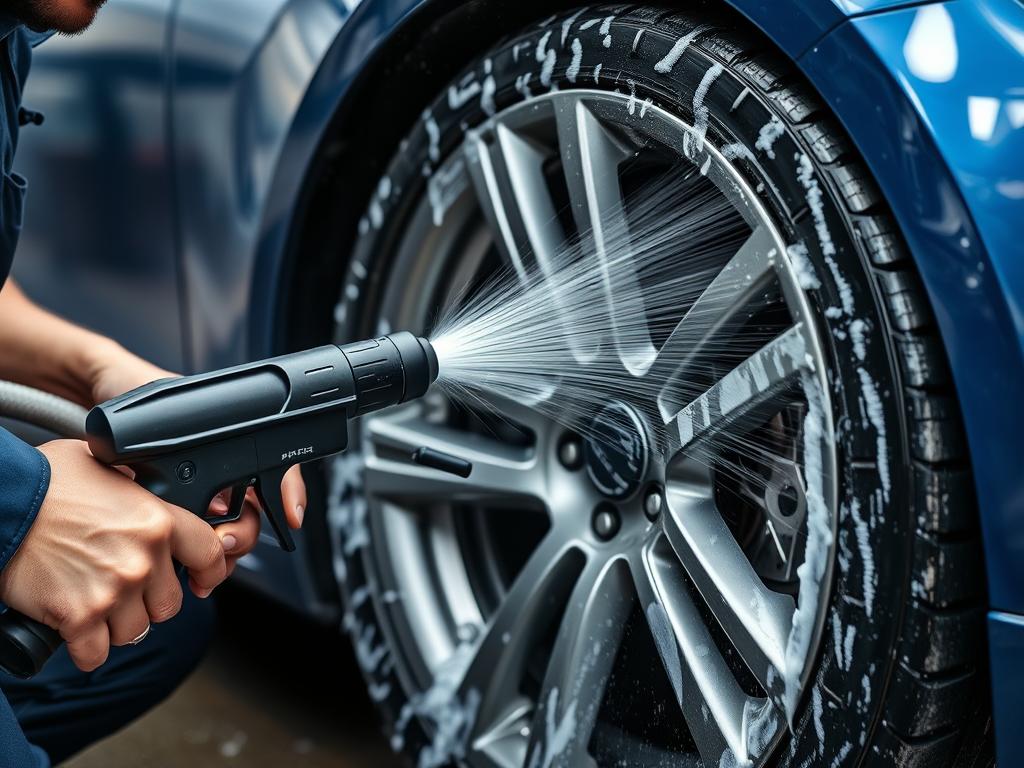
Exterior and Engine Bay Cleaning
- Pre-rinse surfaces to remove loose debris
- Apply APC directly to heavily soiled areas
- Allow appropriate dwell time (30-60 seconds)
- Agitate with appropriate brush for the surface
- Rinse thoroughly before product dries
- Follow with appropriate protection product
Safety Precautions
- Wear gloves when working with concentrated or alkaline products
- Ensure adequate ventilation, especially with strong-smelling products
- Keep products away from children and pets
- Never mix cleaning products (can create harmful gases)
- Store products according to manufacturer recommendations
- Dispose of empty containers properly
Frequently Asked Questions About Car Detailing APCs
Can I use the same APC on all car surfaces?
While many APCs claim to be all-surface safe, it’s best to match the product to the surface. For delicate materials like leather and alcantara, use pH-neutral products (pH 6.5-7.5) like CarPro Multi X or Chemical Guys Nonsense. For exterior and engine bay cleaning, stronger alkaline cleaners (pH 9-12) like Koch Chemie Green Star can be more effective. Always test in an inconspicuous area first and follow proper dilution guidelines.
Are concentrated APCs worth the extra cost?
Yes, concentrated APCs typically offer significantly better value per cleaning. For example, a bottle of Koch Chemie Green Star can make up to 100 bottles of ready-to-use cleaner when diluted at 1:100 for light cleaning. Even at stronger 1:10 dilution, that’s still 10 bottles of cleaner from one concentrate. The initial investment is higher, but the long-term cost savings are substantial for regular detailers.
Can APCs damage my car’s surfaces?
Yes, improper use of APCs can damage surfaces. Highly alkaline products (pH 11+) can damage leather, fade fabrics, and degrade plastic over time. Even pH-neutral products can cause issues if left to dwell too long or not properly rinsed. Always follow manufacturer guidelines, use appropriate dilution ratios, and thoroughly remove product residue. When in doubt, opt for a milder product specifically formulated for the surface you’re cleaning.
What’s the difference between an APC and an interior detailer?
All-purpose cleaners (APCs) are designed for cleaning and removing dirt, while interior detailers are primarily for maintaining already clean surfaces. APCs have stronger cleaning agents to break down soil and grime, while interior detailers typically contain light cleaning agents plus UV protection and anti-static properties. For regular maintenance, use an interior detailer; for deeper cleaning when surfaces are visibly dirty, use an APC followed by an interior detailer for protection.
How often should I clean my car interior with an APC?
For most vehicles, a thorough interior cleaning with an APC every 2-3 months is sufficient, with more frequent spot cleaning as needed. High-traffic areas like steering wheels, door handles, and center consoles may need more frequent attention. Between deep cleanings, use quick detailers or interior wipes for maintenance. Vehicles used in dusty environments or with children and pets may require more frequent cleaning with an APC.
What’s the best way to dilute concentrated APCs?
For accurate dilution, use high-quality spray bottles with measurement markings or a separate measuring cup. Always add the water first, then the product (not the other way around) to prevent excessive foaming. For precision, use distilled water to prevent mineral deposits. Label bottles clearly with the product name and dilution ratio. For products like Koch Chemie Green Star or Surfex HD that offer multiple dilution options, consider having separate bottles prepared for different cleaning tasks.
Are APCs safe for ceramic coatings and paint protection film?
Not all APCs are safe for ceramic coatings and paint protection film (PPF). For these surfaces, choose pH-neutral products specifically tested for coating compatibility, such as CarPro Multi X (our Editor’s Choice). Avoid highly alkaline cleaners (pH 10+) on coated surfaces as they can degrade the protection over time. After cleaning coated surfaces, it’s beneficial to follow up with a coating-specific maintenance spray to restore hydrophobic properties.
Conclusion: Choosing the Right APC for Your Detailing Needs
After examining the top all-purpose cleaners for car detailing, it’s clear that the “best” option depends on your specific needs and vehicle surfaces. Our Editor’s Choice, CarPro Multi X, offers the best balance of cleaning power and surface safety with its pH-neutral formula that’s safe for all surfaces including ceramic coatings.
For professional detailers handling multiple vehicles, Koch Chemie Green Star provides exceptional value through its extreme concentration capabilities. Those focusing primarily on interiors will appreciate the safety and convenience of P&S Xpress Interior Cleaner or Chemical Guys Nonsense.
Budget-conscious detailers should consider Meguiar’s D101 or Simple Green for their excellent value, while those with premium leather interiors might want to supplement their APC with a dedicated leather cleaner like Lexol.
Remember that proper dilution and application techniques are just as important as the product itself. Always test in an inconspicuous area first, follow manufacturer guidelines, and thoroughly remove product residue to maintain your vehicle’s surfaces for years to come.

